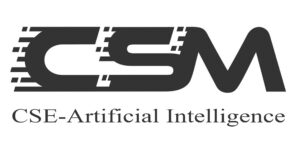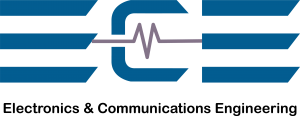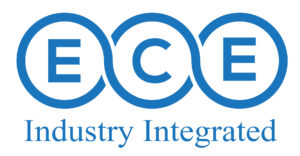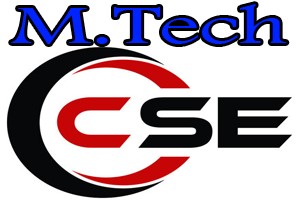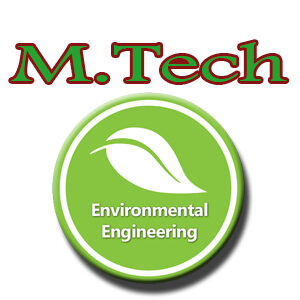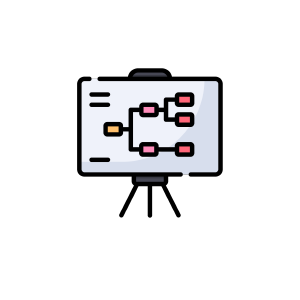Dept. of CSE At a Glance
October 21, 2021 2024-03-29 17:25Dept. of CSE At a Glance
The Computer Science & Engineering (CSE) department is established in 2009, offers Undergraduate program (B. Tech.) in Computer Science and Engineering with an initial intake of 60 seats (during Academic year 2009-10) and an additional intake of 60 (120 seats during the Academic year 2010-11) and 60 (180 seats during the Academic year 2021-22). This department has truly become the center for learning with its excellent infrastructure and other facilities. The college got approval to start M.Tech CSE, which commence from academic year 2012-13.
The teaching methodology in the department goes beyond fulfilling the syllabus requirements of the University, to meet the today’s industry needs. Faculty motivates and guides the students to do mini projects in core subjects. Special focus will be given to develop Communication and Soft Skills.
The department is having strong association with industries to uplift the student’s practical knowledge. The department has mainly focused in the areas of Networking, Big Data, IOT, Cloud Computing, Mobile Technology, Client Server Technology and Cryptography & Network Security.
Students are also involved in the research activities of the faculty. In addition, a few faculty of the department have proposed the in-house Projects funded by the college, as project works for final year students. Faculty of the department has published papers during the past few years in different journals and conferences. Students are encouraged to participate in extra-curricular activities and competitions held by other universities and colleges within the state and out-side the state.
Students are actively participating in the Co curricular and extra curricular activities organized on a regular basis by the departmental students association. They are encouraged to deliver seminar in regular classes and also to present papers. They involve in the National level students paper contest being conducted by the department every year. Students are being trained by conducting extra classes to refresh their knowledge and also required computer software as per the requirements of the company visiting the campus for selections. Developmental Plans are set to accomplish defined long range and short range goals of the department, to develop the laboratories by adding latest servers and client equipment and further to develop centers of Excellency in the focus areas.
Vision
To empower students of Computer Science and Engineering Department to be technologically adopt, innovative, global citizens possessing human value.
Mission
Encourage students to become self-motivated and problem solving individuals.
Prepare students for professional career with academic excellence and leadership skills.
Empower the rural youth with computer education.
Create Centre’s of excellence in Computer Science and Engineering.
Program Educational Objectives (PEO's)
Excel in Professional career by demonstrating the capabilities of solving real time problems through Computer-based system, Machine learning and allied software applications.
Able to pursue higher education and research.
Communicate effectively, recognize, and incorporate appropriate tools and technologies in the chosen profession.
Adapt to technological advancements by continuous learning, team collaboration and decision making.
Program Specific Outcomes (PSO's)
Have expertise in algorithms, networking, web applications and software engineering for efficient design of computer-based systems of varying complexity.
Qualify in national international level competitive examinations for successful higher studies and employment.
Program OutComes (PO's)
Engineering Knowledge: Apply the knowledge of mathematics, science, engineering fundamentals and an engineering specialization to the solution of complex engineering problems.
Problem analysis: Identify, formulate, review research literature, and analyze complex engineering problems reaching substantiated conclusions using first principles of mathematics, natural sciences, and engineering sciences.
Design/development of solutions: Design solutions for complex engineering problems and design system components or processes that meet the specified needs with appropriate consideration for the public health and safety, and the cultural, societal, and environmental considerations
Conduct investigations of complex problems: Use research-based knowledge and research methods including design of experiments, analysis and interpretation of data, and synthesis of the information to provide valid conclusions.
Modern tool usage: Create, select, and apply appropriate techniques, resources, and modern engineering and IT tools including prediction and modeling to complex engineering activities with an understanding of the limitations.
The engineer and society: Apply reasoning informed by the contextual knowledge to assess societal, health, safety, legal and cultural issues and the consequent responsibilities relevant to the professional engineering practice
Environment and sustainability: Understand the impact of the professional engineering solutions in societal and environmental contexts, and demonstrate the knowledge of, and need for sustainable development.
Ethics: Apply ethical principles and commit to professional ethics and responsibilities and norms of the engineering practice.
Individual and team work: Function effectively as an individual, and as a member or leader in diverse teams, and in multidisciplinary settings.
Communication: Communicate effectively on complex engineering activities with the Engineering community and with society at large, such as being able to comprehend and write effective reports and design documentation, make effective presentations, and give and receive clear instructions.
Project management and finance: Demonstrate knowledge and understand of the engineering and management principles and apply these to one’s own work, as a member and leader in a team, to manage projects and in multidisciplinary environments.
Life-long learning: Recognize the need for, and have the preparation and ability to engage in independent and life-long learning in the broadest context of technological change.



